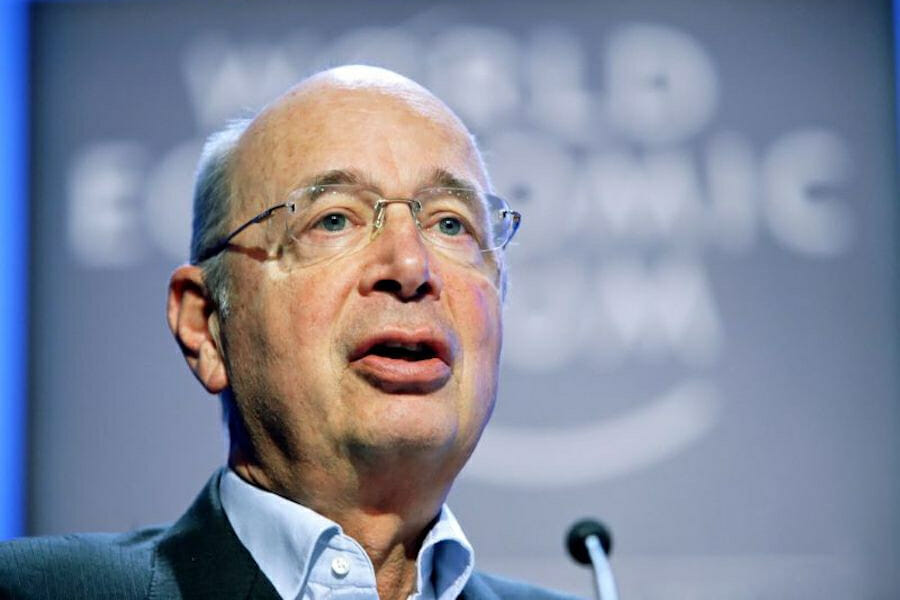
Politics
The Crucial Role of Powerbrokers in International Affairs
The media love to demonize them, and government bureaucracies tend to marginalize them. So why do political leaders entrust private business people with sensitive endeavors of national importance?
In recent days, private equity real estate investor Tom Barrack has made headlines over his efforts to bridge relations between the U.S. and Saudi Arabia. Barrack, well known for his politically-oriented investments in the Middle East, has made significant U.S.-based investments in digital infrastructure and telecoms backed also by Saudi Arabia’s sovereign wealth fund. Reports have also emerged that the businessman planned to sell American nuclear energy technologies to the Kingdom. Some oppose Barrack’s business activities saying they blur the lines between corporate interests and political decision-making, however Barrack, and brokers like him, see business as the essential bridge to foster cultural and political rapprochement.
Powerbrokers tend to be prolific networkers and exert influence across both politicians and business people alike, but it’s their ability to seamlessly move between the worlds of government and business, which enables them to bring people together and facilitate unusual developments.
Using wealthy, connected brokers to mediate between world leaders, horse trade between governments and global corporations, dig up “dirt” on adversaries, or unite powerful people with one another is hardly a new phenomenon.
Indeed, President Donald Trump did it before he was even targeted by the Mueller investigation. Prior to the November 2016 election, for example, Tom Barrack arranged a meeting between the future president and the emir of Qatar in Trump Tower. Barrack, also a former deputy undersecretary at the Department of the Interior, introduced Trump to his ex-campaign manager, Paul Manafort, and facilitated conversations that fortified Trump’s ties with Saudi Arabia and the UAE, helping to realign the Middle East.
Barrack has been one of the most prominent money figures of the Trump era. He fundraised for Trump’s presidential campaign, delivered a prime-time television address at the Republican National Convention and was chairman of Trump’s inaugural committee.
Trump isn’t alone when it comes to using powerbrokers to reach and influence decision-makers. Others also turn to these industry insiders — politicians, business leaders or individuals who are “connected” — to make headway with a particular project or goal. Private sector businesspeople are less constrained by politics and diplomatic optics and can often achieve goals more effectively and efficiently than traditional diplomats.
Powerbrokers such as Barrack are prolific networkers who can sway politicians and business executives and who can think “out of the box.” Sometimes they are industrial lobbyists and members of the media who, because they understand the ins and outs of a particular issue, can reach and influence decision-makers more quickly than those who are unfamiliar with key players.
Political leaders entrust leaders of industry with sensitive endeavors of national importance because they are discrete and creative. They can work outside the standard protocols and bureaucratic constraints, and operate at the intersection of private industry and foreign affairs.
Take Erik Prince, for instance. The ex-U.S. Navy SEAL and founder of the private security contractor formerly known as Blackwater was an important adviser to the UAE as it developed what is probably the Persian Gulf region’s best-equipped and trained military.
After selling Blackwater in 2010, Prince put together an army-for-hire in the UAE. The country, a buyer of U.S. weapons, has reportedly paid millions to think-tanks and consultants to ensure its worldview is heard in Washington. It seems to have worked, with Trump poised to veto House votes to block emergency arms sales to the UAE (as well as Saudi Arabia).
Prince, the brother of U.S. Education Secretary Betsy DeVos, was one of two businesspeople recruited by Trump’s advisers to develop alternatives to the Pentagon’s plan to send thousands of additional troops to Afghanistan. He and Stephen Feinberg, a billionaire financier who owns military contractor DynCorp International, devised proposals to rely on contractors instead of American troops. Those plans raised serious ethical questions, as they would have benefited the two contractors, and were rejected by then-defense chief Jim Mattis — who later resigned over policy differences with Trump.
Another colleague of Prince, Australian-Israeli businessman Joel Zamel, first received public attention in 2018 with a number of media reports on the Mueller investigation. He is the founder of a number of private intelligence companies, including Wikistrat — a crowdsourced intelligence analysis and wargaming platform, and WhiteKnight — which specializes in counter-extremism activities and social media campaigns. Zamel’s focus revolves around private sector influence campaigns — designed to supplement government CVE (countering violent extremism) programs.
Having cultivated a wide network of former government officials and politically active billionaires, Zamel is an active investor in cybersecurity companies that can bring technological capabilities to such CVE efforts.
Zamel’s focus revolves around private sector counter-extremism campaigns — designed to supplement government CVE (countering violent extremism) programs. Having cultivated a wide network of former government officials and politically active billionaires, Zamel is an active investor in cybersecurity companies that can bring capabilities to such CVE efforts.
Wealthy executives are not the only powerbrokers shaping private diplomacy. The likes of former U.S. Secretary of State Henry Kissinger and World Economic Foundation founder Klaus Schwab have also had an impact. These movers and shakers may be more motivated by their own visions and beliefs than businesspeople seeking to line their own pockets, and this means they may serve a more positive purpose in the international system.
Kissinger has played the role of powerbroker for more than six decades — the former U.S. secretary of state has met with Russian President Vladimir Putin and Chinese leader Xi Jinping more than any other American. Back in the 1970s, he pushed one president to use China to isolate the Soviet Union. These days, he’s counseling almost the reverse. Despite a controversial foreign policy track record that includes accusations of war crimes, Kissinger has met with Trump several times in the last few years, showing that he still has political clout.
Much of Schwab’s behind-the-scenes diplomacy comes during the annual World Economic Forum gathering at Davos in the Swiss Alps. He rubs shoulders with the business executives and government leaders who flock to the global economic meeting and meets political leaders around the world to discuss issues such as economic stability, globalization, trade wars, and technological change.
He’s come under criticism, too. “Schwab’s anti-globalist shift is a hijacking attempt,” Stephan Richter and Uwe Bott wrote in Foreign Policy. “It shows how corporate elites are trying to accommodate nationalist populism while still maximizing their own personal gains — which, of course, come at the expense of the very masses they’re attempting to appeal to.”
While it can be debated whether all public diplomatic efforts should be in the hands of elected officials, many former diplomats and government officials suggest that powerbrokers come with two salient qualities: creativity and discretion. Such qualities are often amiss when it comes to modern-day diplomats, who are, perhaps discrete, but often lack crucially important creative abilities, which cannot be taught or learned in universities and foreign policy schools around the world.
These businesspeople-turned-powerbrokers can work outside the standard protocols and bureaucratic constraints, and operate at the intersection of private industry and foreign affairs, thus serving an effective purpose in the international system.
